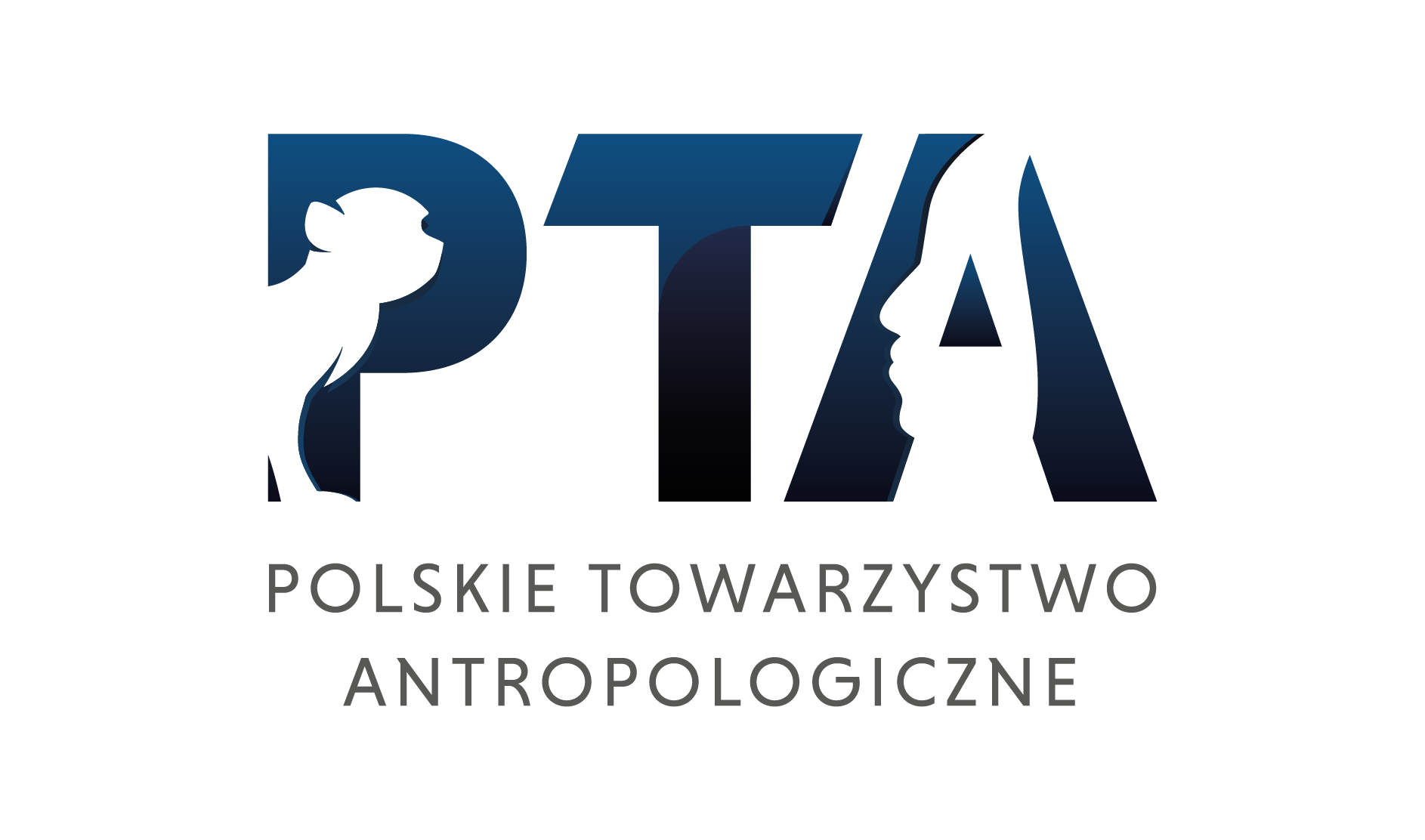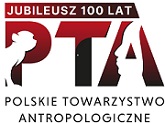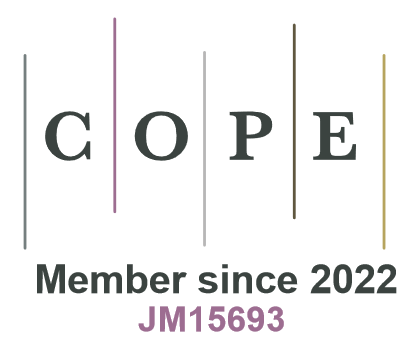Post-medieval stelae cemetery in Nowy Dwór: preliminary results of an anthropological and archaeological study
DOI:
https://doi.org/10.18778/1898-6773.85.2.05Keywords:
epidemic, Podlasie, Christian Orthodoxy, Uniates, grave markers, excavation, necropolisAbstract
The paper presents preliminary results of an anthropological analysis of a previously unknown post-medieval stelae cemetery in the village of Nowy Dwór in Podlaskie Voivodeship, Poland. The main aim of the study was to identify the site itself, and to create the probable biological profile of the local population. The research confirmed the existence of a post-medieval necropolis in which remains of at least 181 individuals were unearthed, with 111 individuals discovered in 88 intact graves and their closest proximity. Few individuals were equipped with what can be interpreted as “obol of the dead”, and at least three burials could be classified as deviant. Biological analysis showed that 33% of analysed individuals regardless of age bore infection-related lesions and post inflammatory pathologies. Constructed mortality tables also correspond more with tables for medieval rather than post-medieval populations. As a conclusion, collected evidence and results of analysis seem to verify the historical accounts mentioning several plague outbreaks in the region, occurring from the 16th to 18th centuries. Individual findings such as “obol of the dead”, as well as the “deviant grave”, likely belonging to a whisperer (witch), can also provide useful to further research on local traditions and beliefs.
Downloads
References
Acsádi G, Nemeskéri J. 1970. History of Human Life Span and Mortality. Budapest: Akadémiai Kiadó.
View in Google Scholar
Buckberry JL, Chamberlain AT. 2002. Age estimation from the auricular surface of the ilium: a revised method. Am J Phys Anthropol 119.3:231–39.
View in Google Scholar
DOI: https://doi.org/10.1002/ajpa.10130
Bogin B. 1999. Patterns of human growth. Cambridge: Cambridge University Press.
View in Google Scholar
Budnik A, Pudło A. 2017. Biodemografia nowożytnego Gdańska w świetle badań nad ossuariami. Możliwości rekonstrukcji i problemy metodyczne. In: Fontes Commentationesque ad res gestas gedani et pomeraniae 6. Gdańsk: Muzeum Archeologiczne w Gdańsku.
View in Google Scholar
Buikstra JA, Ubelaker DH. 1994. Standards for datat collection from human skeletal remains. Fayetteville: Arkansas Archaeological Survey.
View in Google Scholar
Brooks S, Suchey JM. 1990. Skeletal age determination based on the os pubis: a comparison of the Acsádi-Nemeskéri and Suchey-Brooks methods. Hum Evol 5(3):227–38.
View in Google Scholar
DOI: https://doi.org/10.1007/BF02437238
Davies-Barrett AM, Antoine D, Roberts C. 2019. Inflammatory periosteal reaction on ribs associated with lower respiratory tract disease: A method for recording prevalence from sites with differing preservation. Am J Phys Anthropol 168:530–42.
View in Google Scholar
DOI: https://doi.org/10.1002/ajpa.23769
Dec O. 2020. Potrzeba rekonceptualizacji wczesnośredniowiecznych pochówków “wampirów” z ziem polskich. Folia Praehistorica Posnaniensia 25:63–70.
View in Google Scholar
DOI: https://doi.org/10.14746/fpp.2020.25.03
Duma P. 2015. Śmierć nieczysta na Śląsku. Studia nad obrządkiem pogrzebowym społeczeństwa przedindustrialnego. Wrocław.
View in Google Scholar
Garcin V, Veleminsky P, Trefny P, Alduc-Le Bagousse A, Lefebvre A, Bruzek J. 2010. Dental health and lifestyle in four early medieval juvenile populations: Comparisons between urban and rural individuals, and between coastal and inland settlements. Homo 61(6):421–39.
View in Google Scholar
DOI: https://doi.org/10.1016/j.jchb.2010.06.004
Grauer AL. 2011. A companion to paleopathology. Vol. 23. John Wiley & Sons.
View in Google Scholar
DOI: https://doi.org/10.1002/9781444345940
Halcrow SE, Harris NJ, Beavan NJ, Buckley HR. 2014. First bioarchaeological evidence of probable scurvy in Southeast Asia: Multifactorial etiologies of vitamin C deficiency in a tropical environment. Int J Paleopathol 5:63–71.
View in Google Scholar
DOI: https://doi.org/10.1016/j.ijpp.2014.01.004
Hershkovitz I, Greenwald CM, Latimer B, Jellema LM., Wish-Baratz S, Eshed V. 2002. Serpens Endocrania Symmetrica (SES): A New Term and a Possible Clue for Identifying Intrathoracic Disease in Skeletal Populations. Am J Phys Anthropol 118:201–6.
View in Google Scholar
DOI: https://doi.org/10.1002/ajpa.10077
Irish JD, Scott GR. 2015. A companion to dental anthropology. John Wiley & Sons.
View in Google Scholar
DOI: https://doi.org/10.1002/9781118845486
Işcan MY, Loth SR, Wright RK. 1984. Age estimation from the rib by phase analysis: White females. J Forensic Sci 29:1094–104.
View in Google Scholar
DOI: https://doi.org/10.1520/JFS11776J
Işcan MY, Loth SR, Wright RK. 1985. Age estimation from the rib by phase analysis: White males. J Forensic Sci 30:853–63.
View in Google Scholar
DOI: https://doi.org/10.1520/JFS11018J
Kozak Ł. 2021. Upiór. 2nd edition. Warsaw.
View in Google Scholar
Kozłowski T. 2012. Stan biologiczny i warunki życia ludności in Culmine na Pomorzu Nadwiślańskim (X–XIII wiek). Studium antropologiczne. Toruń: Wydawnictwo naukowe UMK.
View in Google Scholar
Lepionka H, Cmentarzyska ze stelami a praktyki pogrzebowe chłopów litewskich w okresie nowożytnym. Małe Miasta Duchowość Kanoniczna, 581–97.
View in Google Scholar
Lepionka H, Rybska M. 2017. Cmentarzysko ze stelami kamiennymi w Jagintach gm. Nowy Dwór, woj. podlaskie w świetle badań nieinwazyjnych, Podlaskie Zeszyty Archeologiczne, 201–10.
View in Google Scholar
Lepionka H, Słodka A, Ryżewski G, Drupka B. 2020. Cmentarzysko ze stelami kamiennymi w Jagintach, gm. Nowy Dwór, woj. podlaskie w świetle badań interdyscyplinarnych. Podlaskie Zeszyty Archeologiczne, 139–55.
View in Google Scholar
Lewis ME. 2007. The Bioarcheology of Children. Perspectives from Biological and forensic anthropology. Vol. 50. Cambridge University Press.
View in Google Scholar
Lovejoy CO, Meindl RS, Pryzbeck TR, Mensforth RP. 1985. Chronological matamorpgosis of the auricular surface of the ilium: a new method for the determination of adult skeletal age at death. J Forensic Sci 68(1):15–28.
View in Google Scholar
DOI: https://doi.org/10.1002/ajpa.1330680103
Lovejoy CO. 1985. Dental wear in the Libben population: its functional pattern and role in the determination of adult skeletal age at death. J Forensic Sci 68(1):47–56.
View in Google Scholar
DOI: https://doi.org/10.1002/ajpa.1330680105
Łożyński K. 2006. Początek kolonizacji Puszczy Grodzieńskiej. In: Śliwiński J, editor.
View in Google Scholar
Ortner DJ. 2003. Identification of pathological conditions in human skeletal remains. J Clin Forensic Med 13:154.
View in Google Scholar
Pinhasi R, Mays S. 2008. Advances in human paleopathology. John Wiley & Sons.
View in Google Scholar
DOI: https://doi.org/10.1002/9780470724187
Puszcze wielkoksiążęce na północnym Podlasiu i zachodniej Grodzieńszczyźnie w XV–XVI wieku (podziały, administracja, służby leśne i wodne). Olsztyn, 149.
View in Google Scholar
Piontek J. 1992. Stres w populacjach pradziejowych. Założenia, metody, wstępne wyniki badań. Biologia Populacji Ludzkich Współczesnych i Pradziejowych. Słupsk, 321–345.
View in Google Scholar
Pudło A. 2016. Mieszkańcy średniowiecznego Gdańska w świetle wyników badań antropologicznych. Fontes Xommentationesque ad Res Gestas Gedani et Pomeraniae 5. Gdańsk: Muzeum Archeologiczne w Gdańsku.
View in Google Scholar
Sierba M. 2016. Morowe powietrze w Orli, na Podlasiu i w Rzeczpospolitej w listach urzędników podlaskich Krzysztofa II Radziwiłła – Macieja Berzeńskiego i Stanisława Kurosza. Studia Podlaskie 24: 41–59.
View in Google Scholar
DOI: https://doi.org/10.15290/sp.2016.24.02
Stachowski K. 2005. Wampir na rozdrożach. Etymologia wyrazu upiór ~ wampir w językach słowiańskich. Rocznik Slawistyczny 55:73–92.
View in Google Scholar
Steckel RH, Sciulli PW, Larsen CS, Walker PL. 2006. The Global History of Health: Data Collection Codebook.
View in Google Scholar
Todd TW. 1921. Age changes in the pubic bone. Am J Phys Anthropol 4(1):1–70.
View in Google Scholar
DOI: https://doi.org/10.1002/ajpa.1330040102
Trotter M, Glesser GC. 1952. Estimation of stature from long bones of American Whites and Negros. Am J Phys Anthropol 10(4):463–514.
View in Google Scholar
DOI: https://doi.org/10.1002/ajpa.1330100407
Ubelaker DH. 2018. Estimation of Immature Age From the Dentition. New Perspectives in Forensic Human Skeletal Identification. Academic Press, 61–64.
View in Google Scholar
DOI: https://doi.org/10.1016/B978-0-12-805429-1.00007-7
Weston DA. 2012. Nonspecific infection in paleopathology: interpreting periosteal reactions. In: AL Grauer, editor. A Companion to Paleopathology. Oxford, UK: Wiley-Blackwell.
View in Google Scholar
DOI: https://doi.org/10.1002/9781444345940.ch27
Wiśniewski J. 1967. Dzieje osadnictwa w pow. augustowskim od XV do końca XVIII wieku. In: Studia i materiały do dziejów Pojezierza Augustowskiego, Białystok 1967:55.
View in Google Scholar
Published
How to Cite
Issue
Section
License

This work is licensed under a Creative Commons Attribution-NonCommercial-NoDerivatives 4.0 International License.
Funding data
-
Ministerstwo Edukacji i Nauki
Grant numbers DNK/SP/463728/2020








